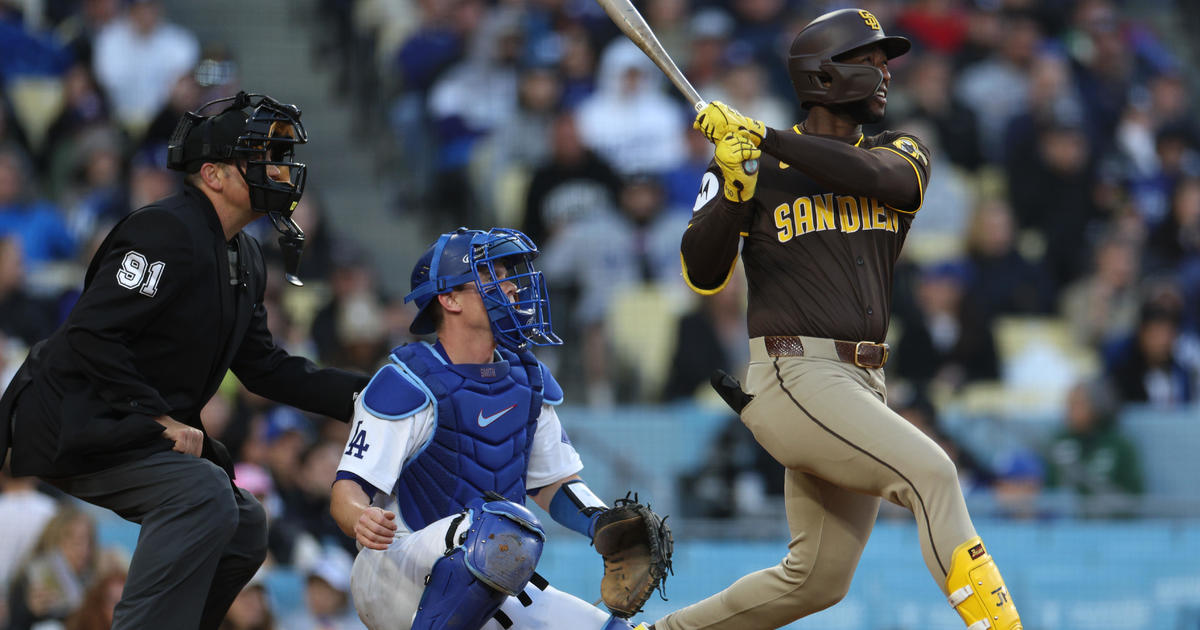Major Networks Block Free TV Shows Online
LOS ANGELES (AP) — The four major television networks are trying to ensure that they get paid for their programming. The broadcasters blocked free TV shows on the Web this month.
Podcast
Director of the Bleier Center for the Study of Television and popular culture, Professor Robert Thompson, Visits KFWB 980
Broadcasters took a big step toward eliminating free TV shows on the Web this month by blocking access to programming online in an effort to enforce that their demands to be paid.
Recent actions by Fox, ABC, NBC and CBS in two separate fee disputes suggest that after a few years of experimenting with free, ad-supported viewing, broadcasters believe they can make more money from cable TV providers if they hold back some programming online.
That could mean new limits on online viewing are coming: Broadcasters might make fewer of their shows available to begin with, or delay when they become available - say, a month after an episode is broadcast, rather than the few hours it typically takes now.
It would make it tougher for viewers to drop their cable TV subscriptions and watch shows online instead. If cable and satellite TV providers can hang on to more subscribers, broadcasters can then demand more money from them to carry their stations on the lineups.
Last weekend, News Corp.'s Fox made TV programming history by blocking online access to its shows, including "Glee" to 2.6 million Cablevision Systems Corp. broadband Internet subscribers. It was part of a fee dispute over how much Cablevision pays to carry the signals of Fox-owned TV stations.
At around the same time, ABC, NBC and CBS turned off access to full episodes when accessed from the new Google TV Web browser, which became available this month.
Both actions sent the message that broadcasters are demanding to be paid for their shows wherever they are seen - just as new devices are making it easier to watch those shows on regular TV sets.
"Basically, they're trying to work hard to ensure that 'cord-cutting' is not an attractive option anymore," said analyst Derek Baine of research firm SNL Kagan, referring to the phenomenon of people cutting their cable subscriptions and catching shows online to save money.
BTIG Research analyst Rich Greenfield put it more bluntly in a blog post on Monday.
"Consumers must be made to realize that nothing is free anymore," he wrote. Fox's tactic wasn't entirely successful. It inadvertently drew into the dispute the Cablevision Internet customers who got their TV feeds from other companies such as DirecTV Inc. Fox abandoned its Internet blockade after about 12 hours following protests from several lawmakers, including Rep. Edward Markey, D-Mass., a senior member on a House subcommittee that oversees technology and the Internet.
Fox TV stations have remained off Cablevision lineups since Oct. 16, though, as the two companies remained locked in dispute. Cablevision has about 3.1 million TV subscribers in the New York area.
The Walt Disney Co.'s ABC, General Electric Co.'s NBC and CBS Corp. also have been blocking Google TV's Web browser from playing their full shows on websites such as ABC.com and TV.com. The Sony television that came pre-installed with the Google software package can still access their channels like any other TV.
Google Inc. conceded that it could not force the broadcasters to make their content available, even though they do so freely through other outlets.
"It is ultimately the content owner's choice to restrict users from accessing their content on the platform," Google said in a statement.
In fact, the free Hulu online video site is already blocked from mobile phones. To watch shows on such devices, you need the $10-a-month Hulu Plus subscription plan.
ABC, NBC, CBS and Cablevision declined to comment. Fox only reiterated its reason for lifting the online blackout.
The online blockades showed that the broadcasters can target certain Internet users with blackouts based on their Internet providers or services. It also revealed how important it is for them to control who is watching - and paying for - their shows.
For the past several years, broadcasters have been pushing cable and satellite operators to pay more to carry broadcast programming that can also be received over the air with a digital antenna. Because most people now get broadcast stations through subscription services, the cable and satellite operators have been grudgingly paying for the retransmission rights.
Such fees have become an increasingly lucrative revenue stream that makes free over-the-air TV more closely resemble cable channels that require paid subscriptions.
But broadcasters find they now must justify those payments. One way is to limit access to their shows for free online, just as Time Warner Inc.'s HBO and other cable channels limit access to their programs on the Web. Access requires passwords tied to cable subscriptions. Baine and Greenfield said broadcasters would likely move to this "walled garden" approach as well.
Time Warner is pursuing such a model, called "TV Everywhere." It would allow paying TV customers to watch shows from its channels including TNT and TBS online after proving their identity. In a similar move, Time Warner Cable Inc., the nation's second-largest cable TV provider, announced Friday that subscribers who pay for plans that include ESPN would also get access to live sports shows online through ESPN3.com starting Monday. Video on that site is restricted to customers of participating subscription TV providers.
Separately, broadcasters are selling their shows online for as little as 99 cents through places such as Apple Inc.'s iTunes store and on Amazon.com - another method that ensures they get paid.
Collins Stewart analyst Thomas Eagan said Fox's inability to exactly target customers that relied on Cablevision for both video and Internet access could prompt it to simply withdraw some programs from the Web altogether. "At the end of the day, you're more likely to end up seeing content companies changing what they make available for free online," he said.
(© Copyright 2010 The Associated Press. All Rights Reserved. This material may not be published, broadcast, rewritten or redistributed.)



